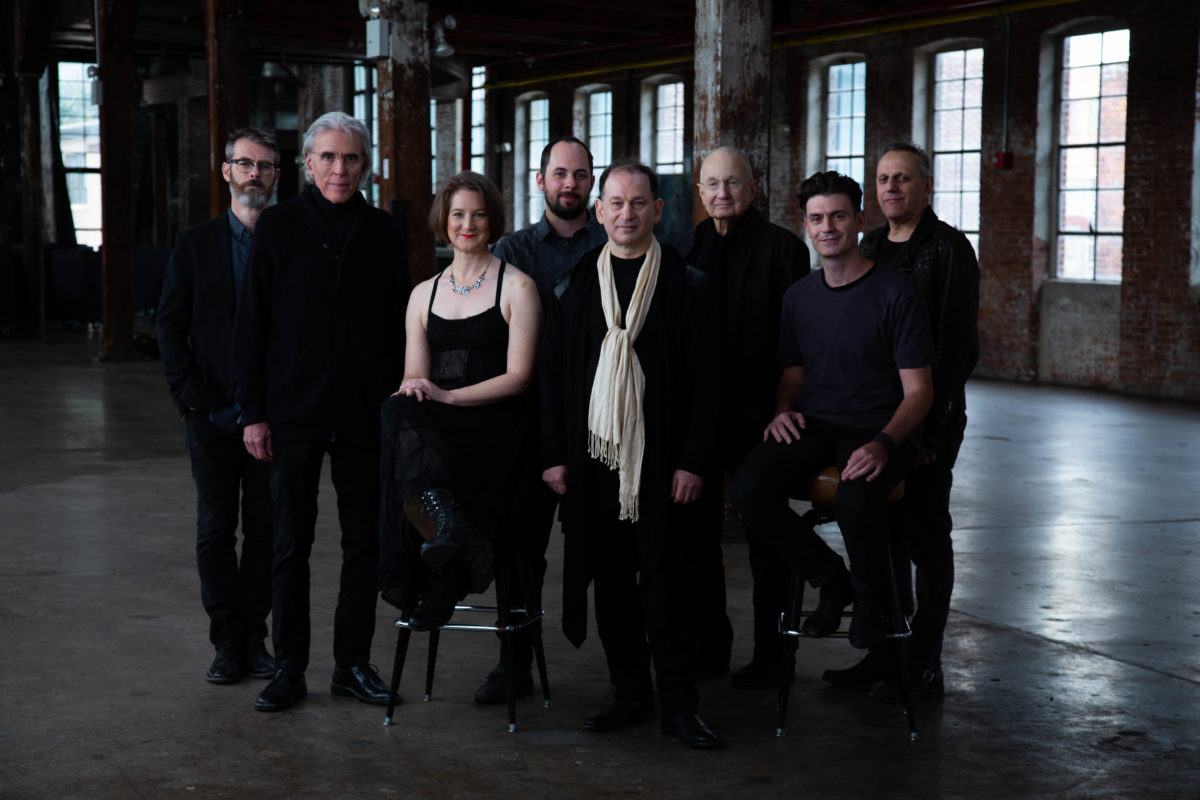Feb
16
Sun February 16th, 2020
4:30PM
Main Space
Minimum Age: All Ages
Doors Open: 3:30PM
Show Time: 4:30PM
Pricing Details:
Advance: $35 Seated / $25 Standing
Day Of: $40 Seated / $30 Standing
Sunday, February 16, 2020 at 7:30pm – Parts Four, Five, Six
Monday, February 17, 2020 at 6:00pm – Parts Seven, Eight, Nine
Monday, February 17, 2020 at 9:00pm – Parts Ten, Eleven, Twelve
Music in Twelve Parts, written by Philip Glass between 1971 and 1974, is a deliberate, encyclopedic compendium of some techniques of repetition the composer had been evolving since the mid 1960s. It holds an important place in Glass’s repertory – not only from a historical vantage point (as the longest and most ambitious concert piece for The Philip Glass Ensemble) but from a purely aesthetic standard as well, because Music in Twelve Parts is both a massive theoretical exercise and a deeply engrossing work of art.

Ticketing Policy
TABLE SEATING POLICY
Table seating for all seated shows is reserved exclusively for ticket holders who purchase “Table Seating” tickets. By purchasing a “Table Seating” ticket you agree to also purchase a minimum of two food and/or beverage items per person. Table seating is first come, first seated. Please arrive early for the best choice of available seats. Seating begins when doors open. Tables are communal so you may be seated with other patrons. We do not take table reservations.
A standing room area is available by the bar for all guests who purchase “Standing Room” tickets. Food and beverage can be purchased at the bar but there is no minimum purchase required in this area.
All ticket sales are final. No refunds or credits.
Philip Glass Ensemble

Phillip Glass Ensemble on Facebook | Philip Glass Ensemble on Twitter | Philip Glass Ensemble on Instagram
Michael Riesman, music director, keyboard
Lisa Bielawa, voice, keyboard, associate conductor
Dan Bora, sound
Sam Sadigursky, saxophone, flute
Peter Hess, saxophones
Ryan Kelly, onstage sound
Mick Rossi, keyboards, percussion, associate conductor
Andrew Sterman, flute, piccolo, saxophones
By special arrangement with Philip Glass and Dunvagen Music Publishers, Inc.
The Philip Glass Ensemble (PGE) comprises the principal performers of the music of Philip Glass. In 1968, Glass founded the PGE in New York City as a laboratory for his music. Its purpose was to develop a performance practice to meet the unprecedented technical and artistic demands of his compositions. In pioneering this approach, the PGE became a creative wellspring for Glass, and its members remain inimitable interpreters of his work.
The artists of the PGE recognize their unique position in the history of music of the past half-century, and passing on that legacy is part of their practice. A deep dedication to educating the next generation of musicians is integral to the PGE’s work, both on tour and as the Ensemble-in-Residence at The Philip Glass Institute at The New School.
The PGE debuted at the Whitney Museum of American Art in 1969, and in its early years performed primarily in the galleries, artist lofts, and museums of SoHo’s then-thriving artistic community. In the five decades since, the PGE has performed in world-renowned music festivals and concert halls across five continents, and has made records with Sony, Nonesuch, and Orange Mountain Music.
Many of Philip Glass’s most celebrated works were expressly composed for the PGE: its core concert pieces Music in Twelve Parts, Music in Similar Motion, and Music with Changing Parts; the opera and musical theater projects Einstein on the Beach, Hydrogen Jukebox, 1000 Airplanes on the Roof, Monsters of Grace; and the full-length dance works Dance (Lucinda Childs) and A Descent Into the Maelström (Australian Dance Theater). The PGE is most widely acclaimed for its soundtracks to Godfrey Reggio’s trilogy of wordless films: Koyaanisqatsi, Powaqqatsi, and Naqoyqatsi. It is also featured in Glass’s operas La Belle et la Bête and The Photographer.

